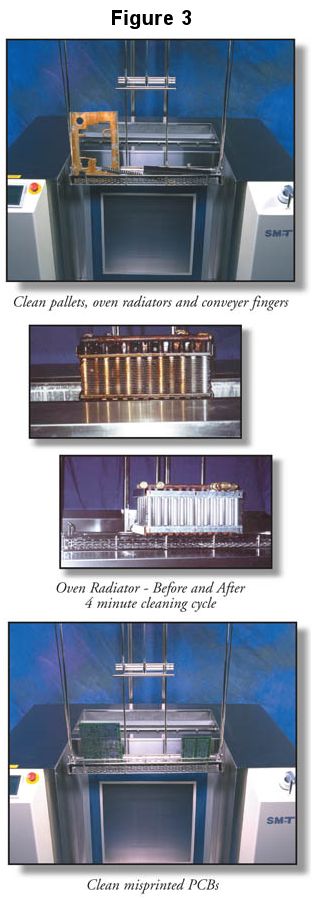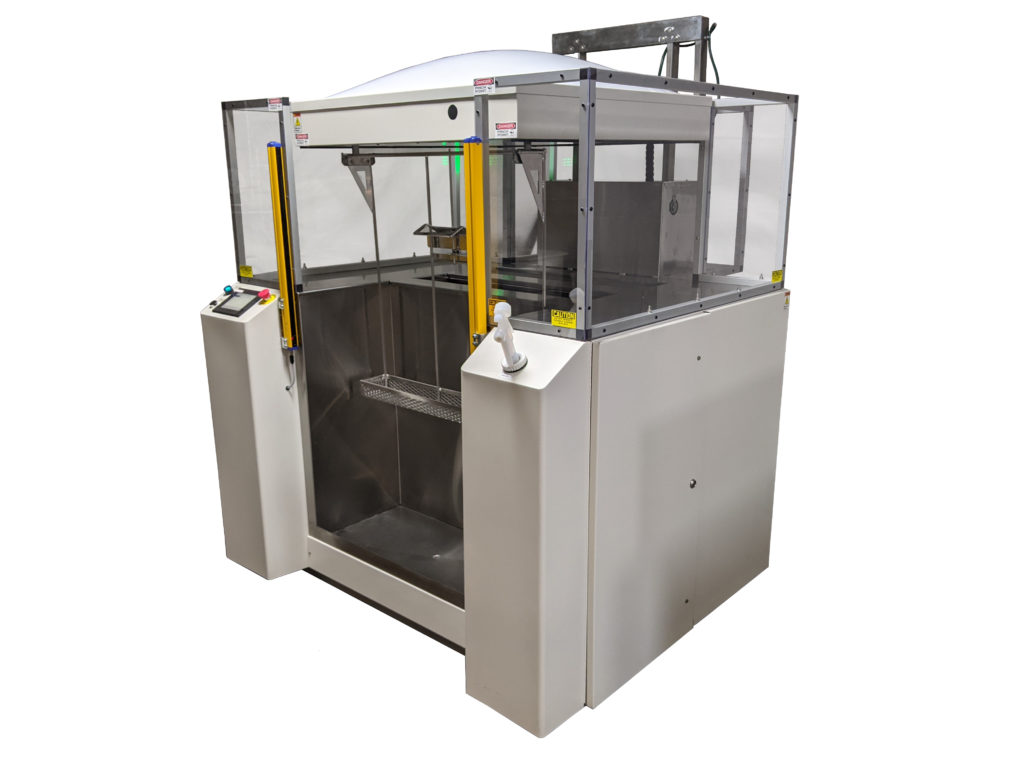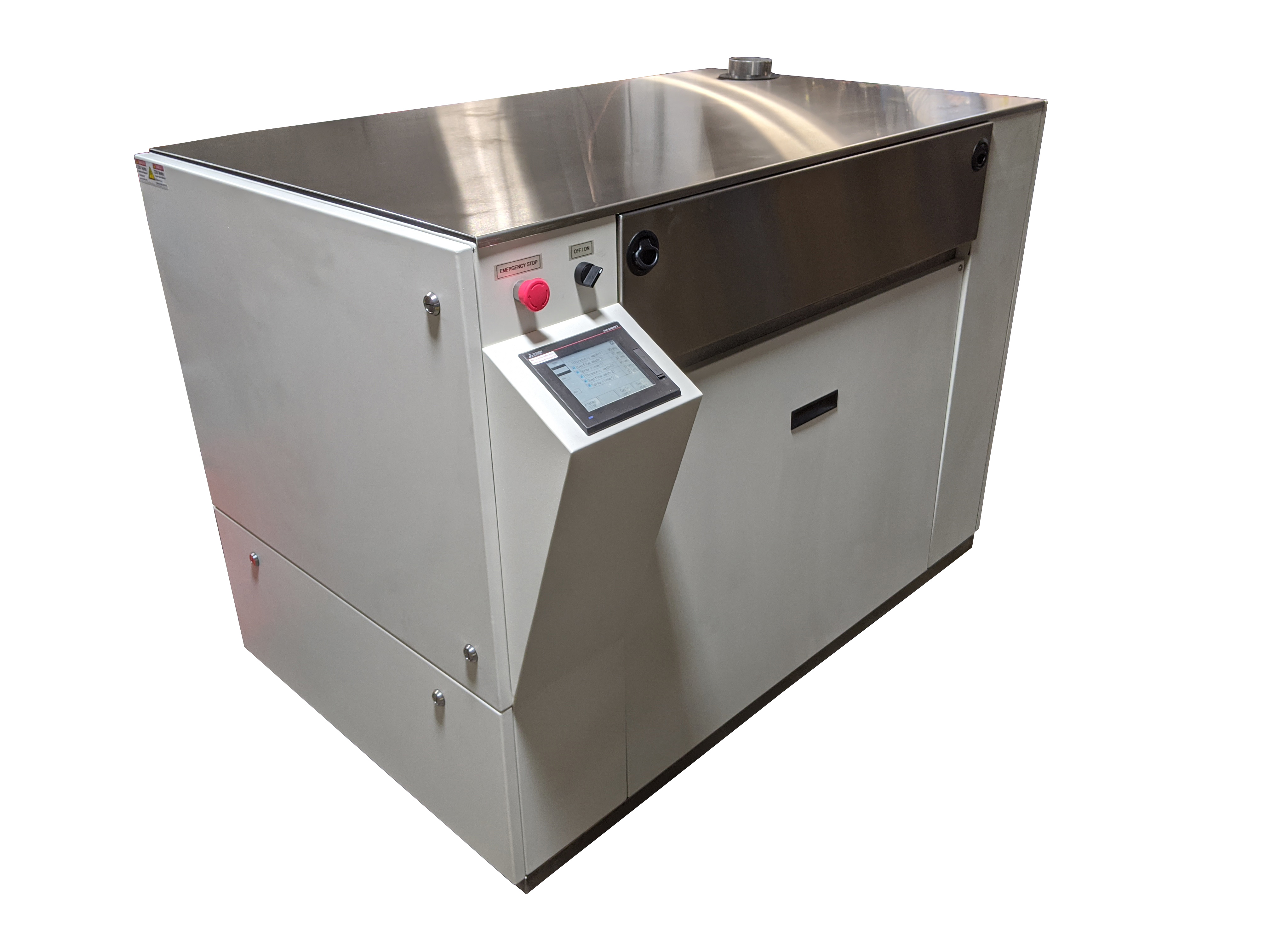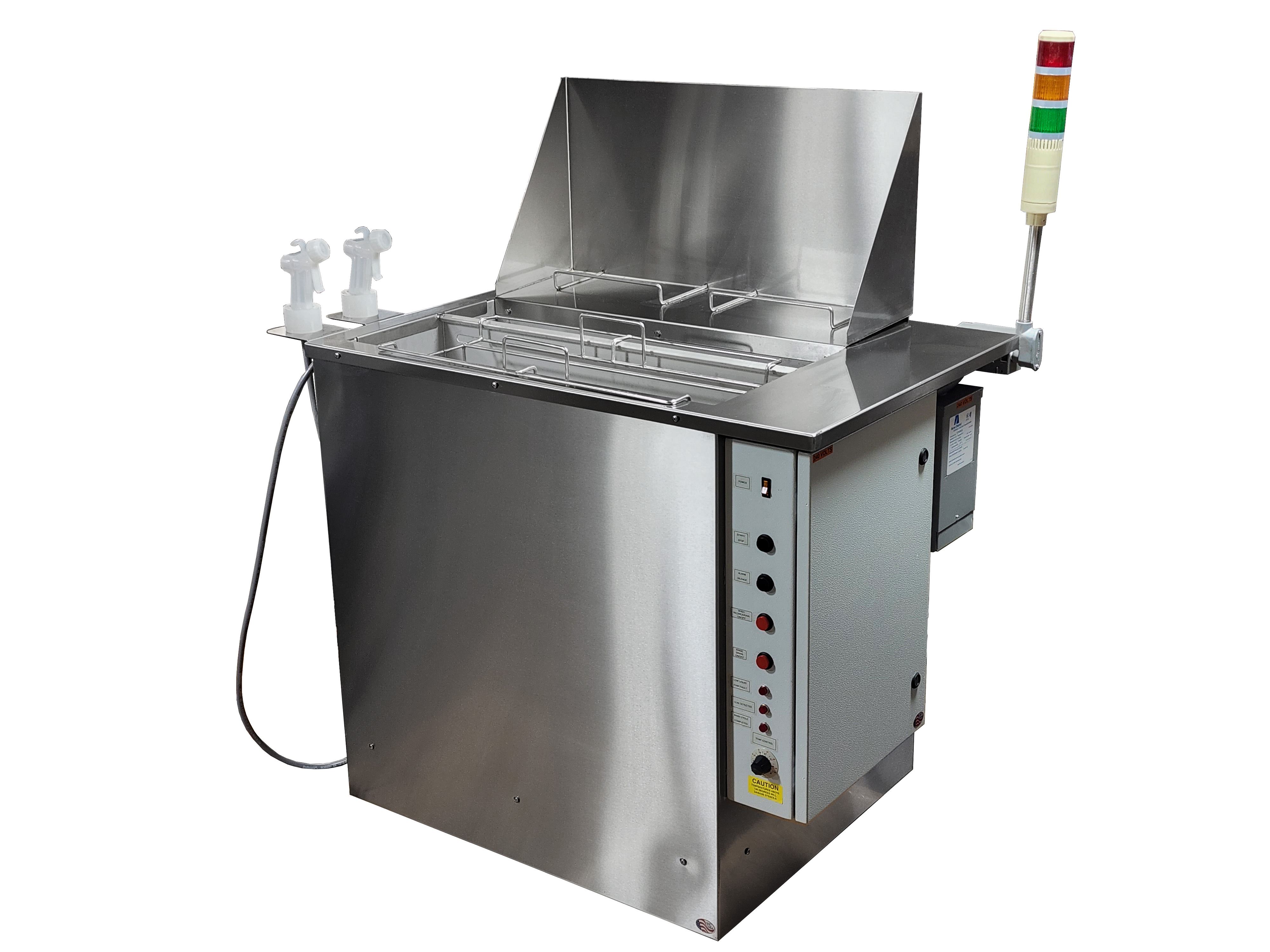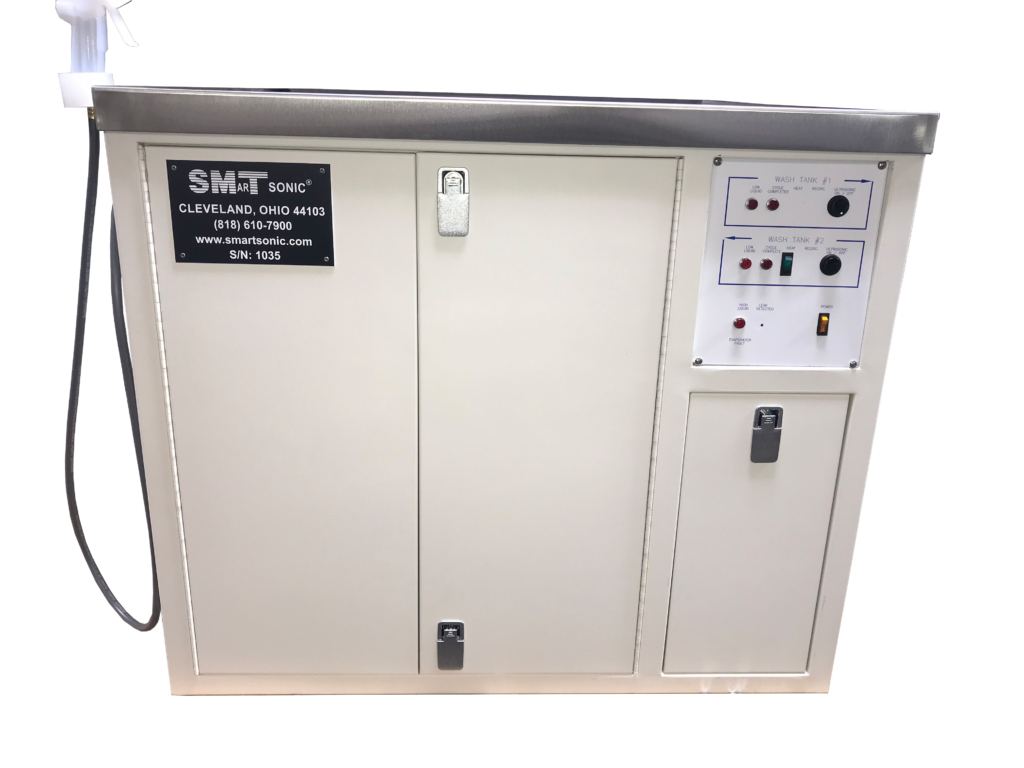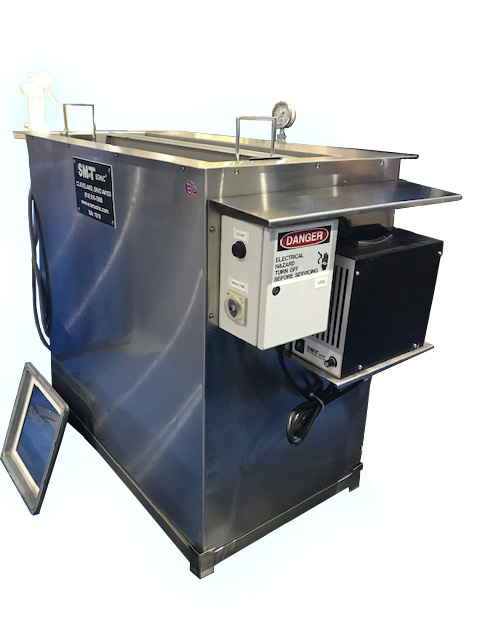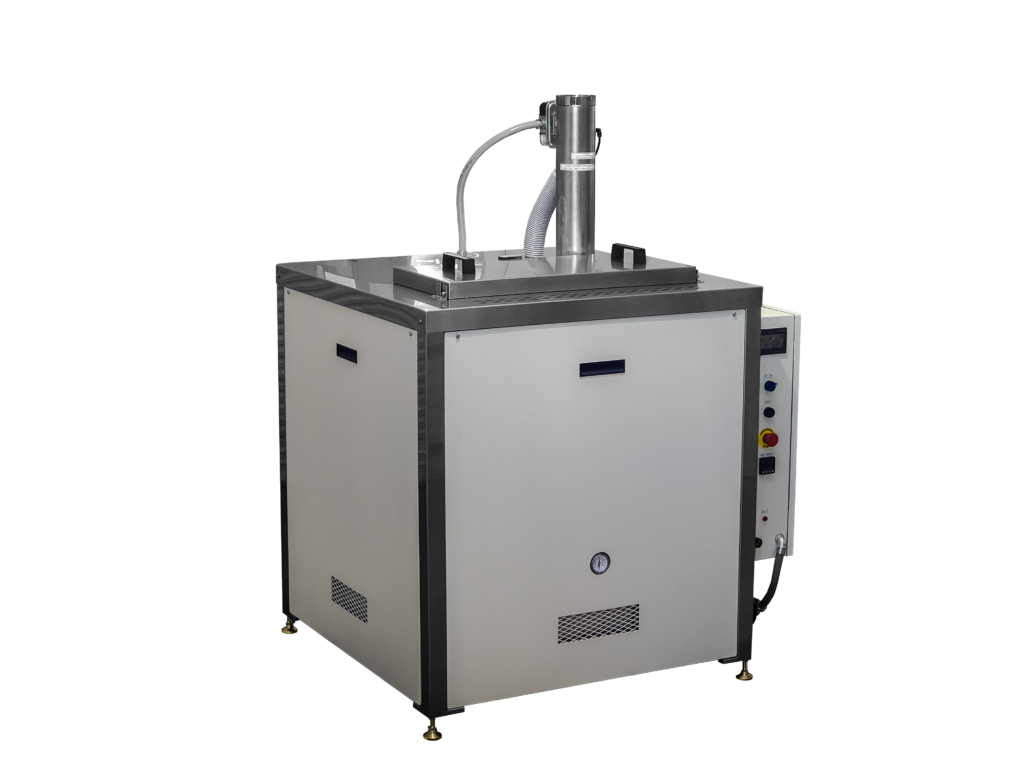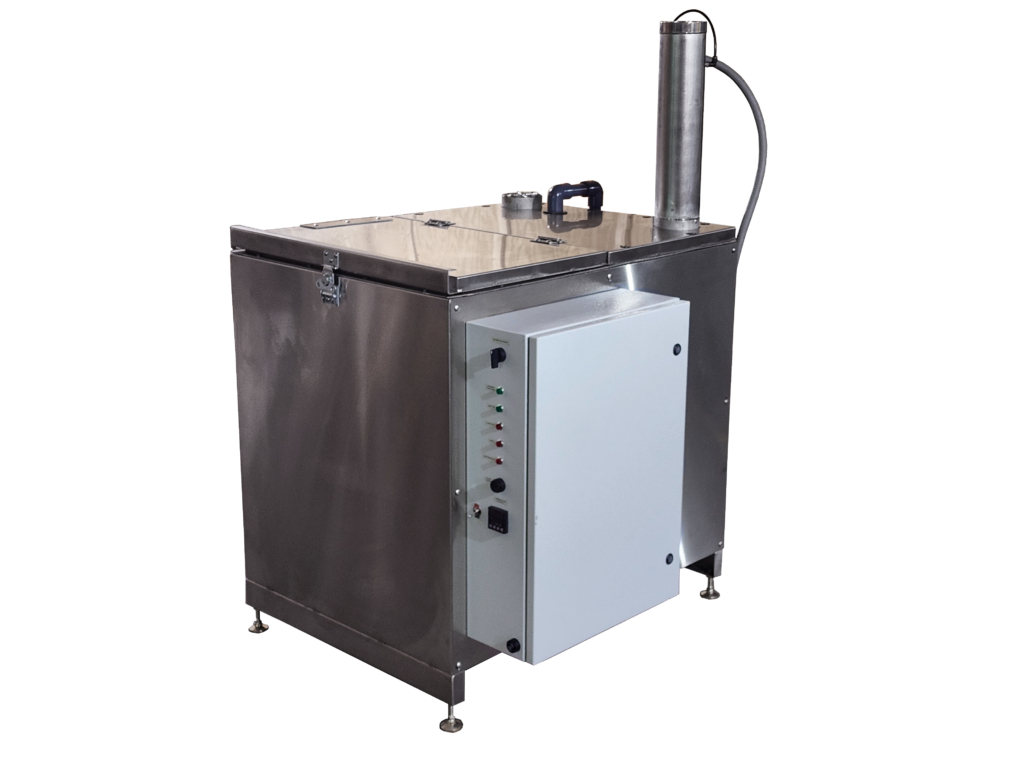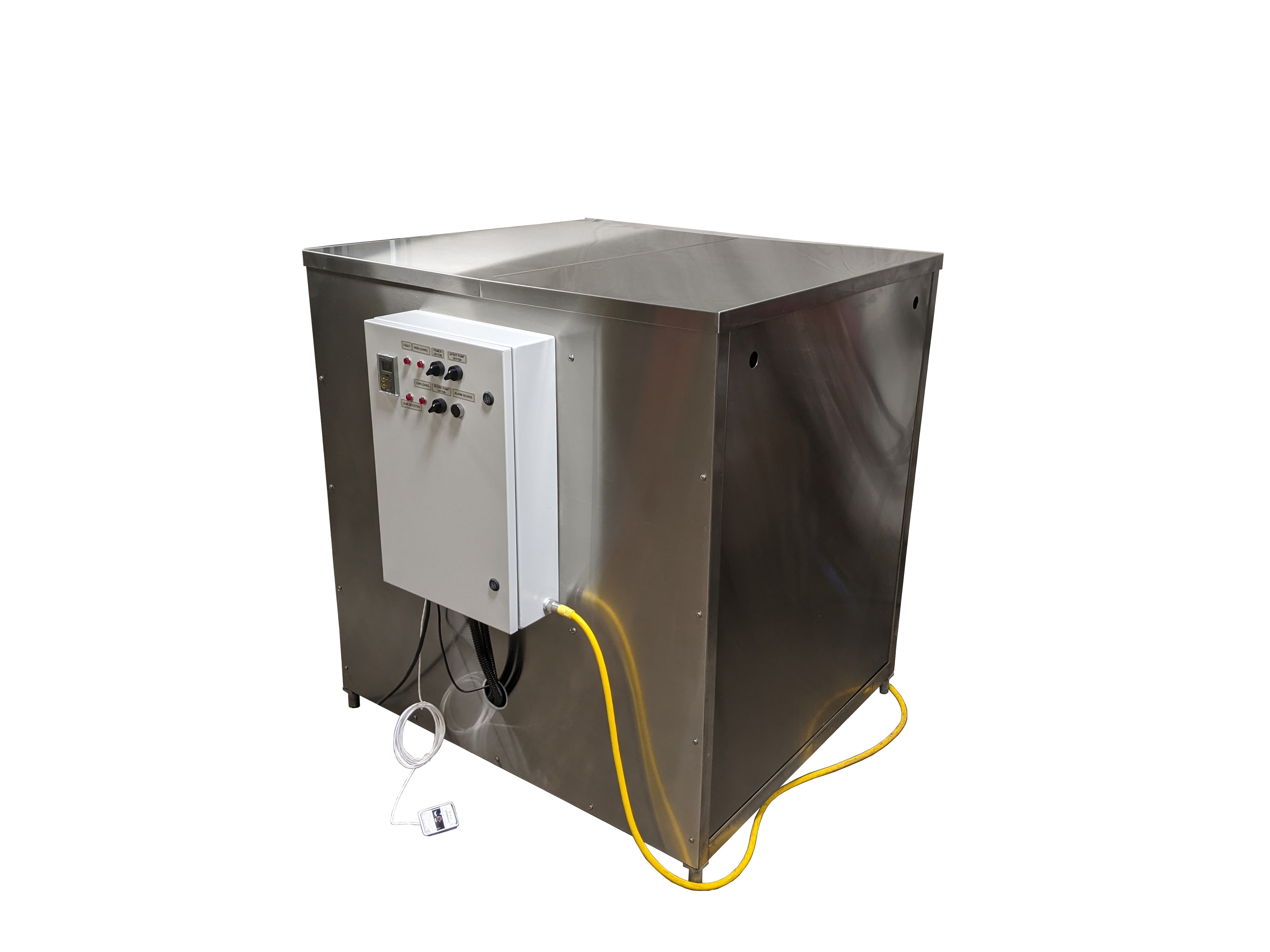The Chemistry
The most important factor of any cleaning process is always the chemistry. The chemistry will dictate the wetting or solubility of the contaminant, user exposure to health and safety hazards, operational cost, environmental impact, odors, hot water vapor, cycle times, ability to clean different solder pastes, energy use for those chemistries requiring elevated temperatures, maintenance schedules, storage and transportation requirements, waste management procedures, and exhaust or other special installation requirements — especially if the chemistry is a low flash point solvent such as alcohol that requires complete isolation from other machines.
Smart Sonic’s 440-R® SMT Detergent is formulated specifically to safely clean all types of solder paste used in SMT assembly. 440-R SMT Detergent eliminates the hazards of alcohol, terpenes and hot/corrosive saponifiers used in other stencil cleaning systems, and replaces them with an environmentally safe, non-hazardous, mild alkaline detergent that cleans effectively without heat.
Stencils are heat-sensitive. Stencil manufactures recommend stencils be cleaned at temperatures less than 110°F (43°C)¹ because the adhesives used to bond the screen to the frame and metal etched foil are heat-cured. Hot wash solutions and/or hot drying air can weaken the bond of the heat-cured adhesive and cause separation of the screen from the frame or foil. Stencils are also made of different metals: an aluminum frame; stainless steel or polyester screen; and a stainless steel, brass or nickel etched foil. If these metals are washed in hot water or dried with hot air, the metals will expand and contract causing distortion of the etched image and screen tension problems. In addition, the water vapor generated from hot wash water or drying operations can be a key contamination source for an SMT assembly area. Smart Sonic’s 440-R SMT Detergent cleans at ambient temperature to assure the integrity of the stencil, prolong stencil life, eliminate potential water vapor contamination, conserve energy and protect users from hot solutions.
Unlike saponifiers that are consumed during the cleaning process and require continuous replenishment, 440-R SMT Detergent is a surfactant (wetting agent) that is not consumed or “loaded” when cleaning solder paste. The initial 10% solution will last for over two weeks, no matter if 50 stencils or 500 stencils are cleaned. The cost reduction in chemistry and related waste management alone can often justify the purchase of a Smart Sonic cleaning system.
440-R SMT Detergent has been evaluated by industry experts resulting in the SMT Vision Award, the Global Technology Award, nomination for the 2001 Presidential Green Chemistry Challenge Award and officially certified by the California Environmental Protection Agency (1999) and verified environmentally safe, user safe and effective by the U.S. EPA’s Environmental Technology Verification Program. Because of 440-R SMT Detergent, there are no VOCs, no scalding temperatures, and no fire or explosion hazards common with other stencil cleaning systems. The user is assured of environmental, health and safety compliance.
440-R SMT Detergent will not only clean any type of solder paste, it will also clean SMD adhesives, hybrid inks and flux residue buildup from pallets, oven radiators and other tooling.
The Stencil Cleaners
While the most important factor of any cleaning process is the chemistry, how to apply that chemistry is dictated by the geometry and production rate of the part to be cleaned. Smart Sonic’s 440-R SMT Detergent is activated utilizing one of the Smart Sonic Ultrasonic Stencil Cleaners. All Smart Sonic cleaners use modular side- mounted “sweep frequency” ultrasonic transducers to provide the ultimate in cleaning efficiency by directing the non-destructive ultrasonic energy toward the surface to be cleaned. Ultrasonics can penetrate fine-pitch and ultra fine-pitch areas that spray systems cannot reach. (See Figs. 1 & 2) Each Smart Sonic cleaner has been engineered and ultrasonically powered to meet the task of removing even dry solder paste and post solder flux buildup safely and completely in just seconds.
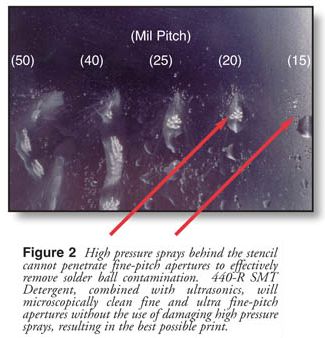
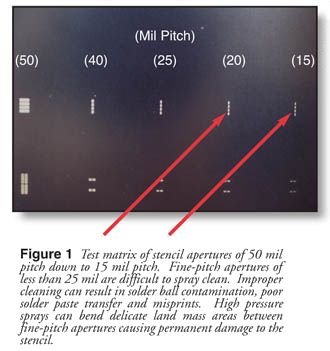
Smart Sonic has semi-automatic and fully automatic cleaning systems to meet the needs of every SMT user. All Smart Sonic stencil cleaners are designed to clean stencils as large as 29-inches (750 mm). There is no concern of potentially “outgrowing” your stencil cleaner if you should change frame sizes in the future. Smart Sonic machines have been independently tested and certified by Electro Energy Corp., Los Angeles City Electrical Testing Laboratories, Ontario Hydroelectric, MET Laboratories and the California Environmental Protection Agency (Cal/EPA) for electrical and mechanical engineering, efficacy, user safety and Environmental Safety, European CE and the SEMI S-2 and S-8 Standards. Upon evaluation by industry experts, Smart Sonic Stencil Cleaners won the 1998 SMT Vision Award.
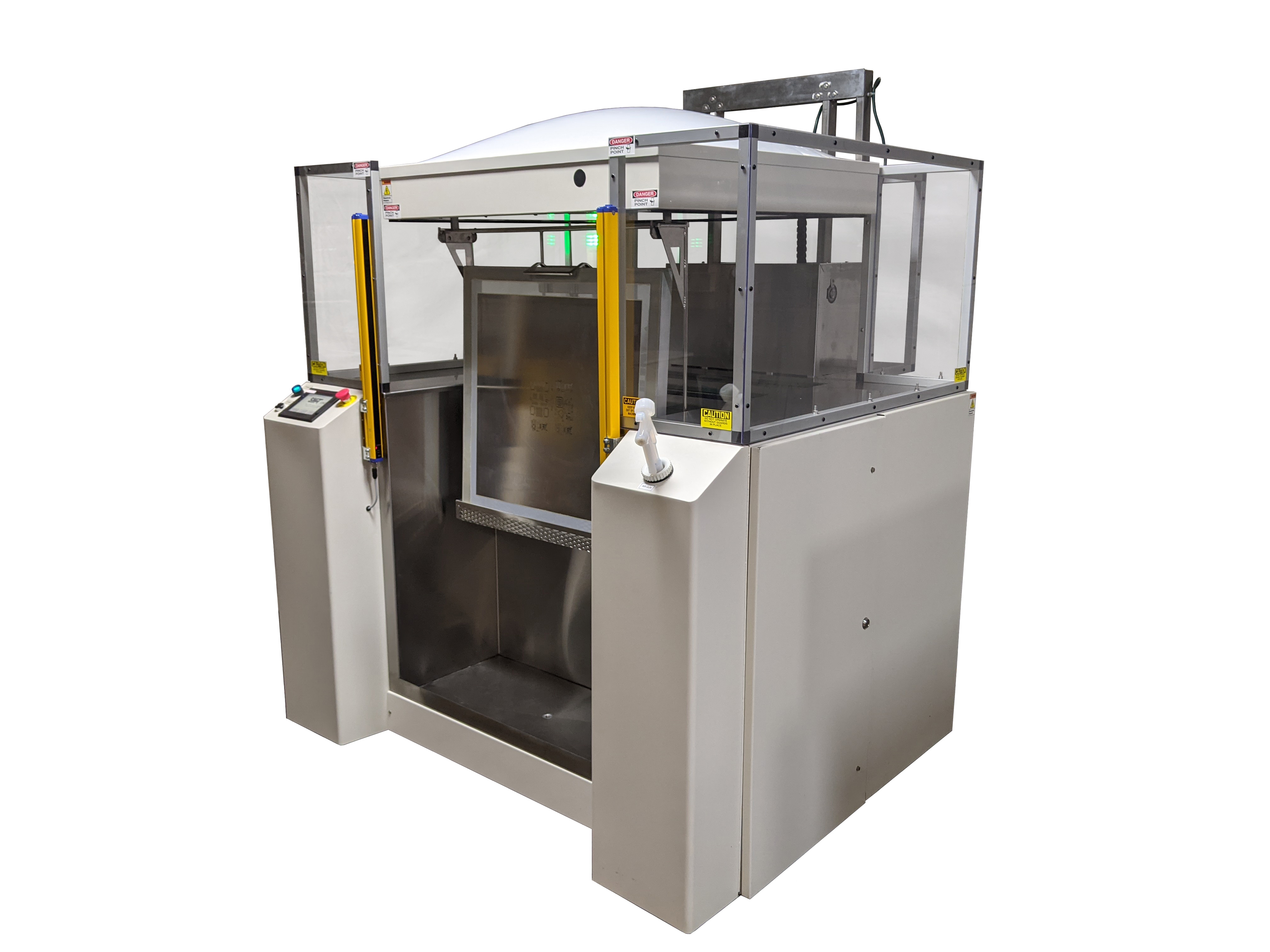 At the touch of a button, the Series 6000 Stencil Cleaners automatically lowers the stencil into the ultrasonic wash tank containing the 440-R SMT Detergent solution. The wash cycle is completed in approximately one minute. The stencil is then automatically lifted from the wash tank and moved to the adjacent rinse tank. 440-R SMT Detergent rinses very easily. The rinse cycle lasts only 5-10 seconds using low-pressure sprays. The stencil is then returned to the original loading/unloading position or an optional low temperature dry cycle can be incorporated. The user may also customize the wash, rinse and optional dry cycle times and setup different cleaning profiles to meet several cleaning applications.
At the touch of a button, the Series 6000 Stencil Cleaners automatically lowers the stencil into the ultrasonic wash tank containing the 440-R SMT Detergent solution. The wash cycle is completed in approximately one minute. The stencil is then automatically lifted from the wash tank and moved to the adjacent rinse tank. 440-R SMT Detergent rinses very easily. The rinse cycle lasts only 5-10 seconds using low-pressure sprays. The stencil is then returned to the original loading/unloading position or an optional low temperature dry cycle can be incorporated. The user may also customize the wash, rinse and optional dry cycle times and setup different cleaning profiles to meet several cleaning applications.
For those applications requiring automatic drying of each stencil, Smart Sonic offers a unique low temperature drying option that can safely dry a stencil in approximately 5 minutes.
The 500, 1500 & 2000 Series Stencil Cleaners are more traditional ultrasonic systems. The operator manually moves the stencil from the wash tank to the adjacent rinse tank where the stencil is rinsed using a hand-held water spray or with optional foot pedal-operated spray jets. Because hot air drying can damage a stencil, it is recommended that the stencil be allowed to air-dry naturally. Or, low pressure, dry compressed air can be applied to expedite the drying process. If hand-held dry compressed air is used, the total cycle for a washed, rinsed and dry stencil is only 3-4 minutes!
Semi-Automatic Series
Wastewater Treatment
Smart Sonic has solved the problem of liquid hazardous waste disposal! The wash solution is changed only once monthly, independent of the number of stencils cleaned. This significantly limits the amount of wastewater generated. 440-R SMT Detergent can be filtered by conventional means and prepared for drain disposal like other aqueous waste steams. However, most users prefer not to discharge anything to drain because of the associated liabilities. 440-R SMT Detergent provides an alternative. Because 440-R SMT Detergent contains no hazardous ingredients, no VOCs and the pH is mild alkaline, the resulting liquid waste can be simply and safely evaporated to atmosphere in one of the optional wastewater evaporator systems. The non-hazardous liquid is sent to atmosphere reducing everything down to solids for recycling or disposal. The waste solder paste is recycled as a dross or can be melted on site in a wave solder pot.
Smart Sonic also offers EnviroGuard™, the only 100% closed-loop aqueous filtration system. When using EnviroGuard or a Smart Sonic wastewater evaporator, there is no liquid hazardous waste for disposal and no effluent sent to drain, a “zero discharge” process!
Inquire Today!
A Total Process
The Smart Sonic process cleans faster and more effectively than any solvent and is completely environmentally safe. While other stencil cleaning systems are struggling to stay one step ahead of the ever changing environmental and user safety regulations, the Smart Sonic stencil-cleaning process has been officially certified by the California Environmental Protection Agency in 1999 and verified by the U.S. EPA as part of the Environmental Technology Verification (ETV) Program*. Users of the Smart Sonic Stencil Cleaning Process are exempt from record-keeping requirements and emissions fees under AQMD Rule 1171 covering solvent cleaning operations and Rule 1122 covering solvent degreasers.² In addition, use of the water-based 440-R SMT Detergent will minimize hazardous waste and reduce worker exposure to toxic vapors, hazardous solvents, VOCs and the potential explosions of low flash point solvents.
Other stencil cleaning systems require the user to buy a machine from one source, search and test for a chemistry from another vendor and research the proper method to manage the waste stream. When the process fails to perform properly, each vendor tends to blame the other and the user is left in the middle with little recourse. Smart Sonic provides a complete turnkey award winning process that is certified safe and effective, time-tested by hundreds of users worldwide and guaranteed to safely clean any solder paste from any fine-pitch stencil! When buying a Smart Sonic Stencil Cleaning System, you are also buying peace of mind.
Ask Smart Sonic about the Stencil Cleaning Process
Other Applications
The Smart Sonic Process is not limited to cleaning solder paste. By slightly raising the wash temperature to between 90° -110°F (32° — 43°C), SMD adhesives can be cleaned from stencils and misprinted PCBs and post solder flux residues can be cleaned from pallets, oven radiators, conveyor fingers and other tooling. The Smart Sonic cleaning process can clean all the above, yet is user safe, environmentally correct and very economical. (See Figs. 3)
Figure 3: The Smart Sonic Cleaning process is not only the best way to clean solder paste from stencils and misprinted PCBs, it also provides the flexibility for cleaning SMD adhesives from stencils and misprinted PCBs, flux residue buildup from pallets, oven radiators, and conveyor fingers and other tooling!
1. Richard S. Clouthier, “Improving Screen Print Yields,” Electronic Packaging and Production, July 1996, pp 32-36.
2. Sam Atwood, “Products of Eight Companies Certified as Clean Air Solvents.” South Coast Air Quality Management District (SCAQMD) Press Release, July 17, 1997.
* Information on the performance characteristics of this technology can be found at www.epa.gov/etv, or call Smart Sonic at 1(818) 610-7900 for a copy of the ETV verification report. Use of the ETV® Name or Logo does not imply approval or certification of this product nor does it make any explicit or implied warranties or guarantees as to the product performance.
